In The New Republic article A Literary Glass Ceiling?, Ruth Franklin takes on the issue of female writers and the reviews (or seeming lack thereof) of their work.
NewPages Blog
At the NewPages Blog readers and writers can catch up with their favorite literary and alternative magazines, independent and university presses, creative writing programs, and writing and literary events. Find new books, new issue announcements, contest winners, and so much more!
Women’s Works in Review
Spread the word!
WSQ New Editors
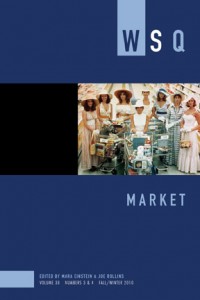 Women’s Studies Quarterly welcomes two new editors: Amy Herzog, associate professor of media studies and coordinator of the Film Studies Program at Queens College, and Joe Rollins, associate professor of political science at Queens College and the CUNY Graduate Center.
Women’s Studies Quarterly welcomes two new editors: Amy Herzog, associate professor of media studies and coordinator of the Film Studies Program at Queens College, and Joe Rollins, associate professor of political science at Queens College and the CUNY Graduate Center.
Spread the word!
African American Literary Festival
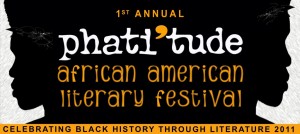 phati’tude Literary Magazine is hosting its 1st Annual African American Literary Festival in celebration of Black History Month. The event is being held at the Queens Library’s Langston Hughes Community Library & Cultural Center in Corona, New York, on February 26, 2011 from 10:00am-4:00pm, which is free and open to the public.
phati’tude Literary Magazine is hosting its 1st Annual African American Literary Festival in celebration of Black History Month. The event is being held at the Queens Library’s Langston Hughes Community Library & Cultural Center in Corona, New York, on February 26, 2011 from 10:00am-4:00pm, which is free and open to the public.
Spread the word!
Granta Spanish Translation Online
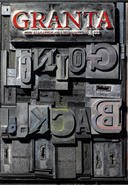 Granta has been adding open access online content from their #113 issue featuring Spanish writing in translation. Their ‘Snapshot’ series consists of posts by Latin American writers Horacio Castellanos, Moya Jaime, and Eduardo HalfonManrique, each exploring an image that encapsulates their homeland. Also accessible are works by Andr
Granta has been adding open access online content from their #113 issue featuring Spanish writing in translation. Their ‘Snapshot’ series consists of posts by Latin American writers Horacio Castellanos, Moya Jaime, and Eduardo HalfonManrique, each exploring an image that encapsulates their homeland. Also accessible are works by Andr
Spread the word!
Happy 10 Pedestal Magazine!
The Pedestal Magazine online celebrates ten years of publishing with its newest issue (#61).
Editor John Amen writes: “In some ways, ten years strikes me as long enough for a venture; as if, after ten years, maybe it’s time to start something new, let the old project go. Pedestal, however, continues, in my view, to evolve. I keep feeling as if the magazine is ‘just getting started,’ as if we’ve finally reached a ‘good beginning point,’ finally ‘found our stride.’ We’re receiving stellar work, and a lot of it, from talented writers. The staff has expanded to include so many skilled and dedicated writers and editors. The technology supporting the magazine is now flexible enough to allow for various developments, new features that can be integrated into the magazine’s format, thereby creating new possibilities. In short, the project remains new. So, we definitely continue….”
And to do so, Pedestal welcomes three new staff members: Bruce Boston, Marge Ballif Simon, and Alice Osborn.
Spread the word!
Brevity’s Craft Section
The Craft Essays section in the January 2011 issue of Brevity: A Journal of Concise Literary Nonfiction includes interviews with authors Lee Martin and Thomas E. Kennedy, and a new craft essay by by Cynthia Pike Gaylord on how the thesis statement functions in literary works: “I still love thesis statements – after all, they saved me from many long hours staring bleary-eyed at the computer screen. And I do think a writer should be able to articulate verbally the thesis of any personal essay he or she considers nearly complete.”
Spread the word!
AWP 2011 Return
We have safely returned from AWP 2011 Washington D.C.!
Huge thanks to all who stopped by the NewPages table to say hello and give us a shout out, as well as those who took the time to learn about who we are and what we do.
I need a couple more days to catch up. Please be patient, blog fans – I have SO MUCH to share from AWP as well as the regular goodies; I hope to be back on schedule by mid-week.
Of course, a beer donation or two wouldn’t hurt to prime the pump (see beer glass on right).
Spread the word!
NewPages D23@AWP
Weather permitting, NewPages will be at the AWP Conference in Washington, DC from February 2 – 6. If you’re there, stop on by and meet the people behind the pages! We’ll be at table D23 in the bookfair.
Consequently, there will not be as much blogging going on this week. Beer fund contributions, however, are still welcome!
Spread the word!
NewPages Updates :: February 01, 2011
New additions to the The NewPages Big List of Literary Magazines:
Assaracus – GLBT poetry
Yomimono – (Japan) poetry, fiction
Open Face Sandwich – prose, art
Puffin Circus – poetry, art
THIS ‘zine – fiction, essays
Barnstorm – poetry, fiction, nonfiction, artwork
Paperbag – poetry, sound, experiment, collaboration, visual art
Sphere – undergraduate poetry, fiction, nonfiction
Union Station – poetry, fiction, photography, book reviews, interviews
ken*again – poetry, fiction, creative nonfiction, art, photographs and cartoons
Village Pariah – poetry, fiction, nonfiction (sponsor: Mark Twain Home & Museum)
Caper Literary Journal – poetry, fiction, memoir, essay, reviews, art, chapbooks, interviews, video, music
WomenArts Quarterly Journal – poetry, fiction, essays, visual art, music reviews, scholarly articles, creative non-fiction, poetry, erotica, graphic fiction, comics, reviews, photos, artwork, video
New addition to The NewPages Big List of Alternative Magazines:
Persepolis Magazine – multi-university bilingual in English and Farsi (Canada)
New addition to the NewPages Guide to Independent Publishers & University Presses
Fresco Books
Atticus Books
Last Light Studio
Small Desk Press
Casperian Books
Spread the word!
Happy 50th American Short Fiction
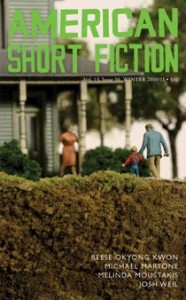 Launched in 1991, American Short Fiction celebrates its 50th issue with Winter 2010. Congrats ASF!
Launched in 1991, American Short Fiction celebrates its 50th issue with Winter 2010. Congrats ASF!
Spread the word!
The Captain Asks for a Show of Hands
Well worth the wait his many fans have endured, Nick Flynn’s first collection since 2002—The Captain Asks for a Show of Hands—reasserts his reputation as a champion of contemporary American poetry. As the book tackles leading-edge themes such as torture, bodily release, and moral ambiguity by drawing from expansive media and world culture, you begin to realize that these are not your grandpa’s self-referential, literary canon poems. Flynn is influenced by poetry of the past (most notably with the repetition of Whitman’s “oh captain, my captain”), but he also draws from movies, music (I caught Arcade Fire and Britney Spears; I’m sure there’s more), and world events. The strong and subtle messages concerning the Iraq War and the torturing of prisoners at Abu Ghraib and other instances lend an uncomfortably gritty realism to the collection; I doubt any reader will be able to finish “seven testimonies (redacted)” and the accompanying notes without shuddering; I couldn’t. I also couldn’t remember the last time a collection of poetry made me shudder. Continue reading “The Captain Asks for a Show of Hands”
Spread the word!
The Cloud Corporation
With impressively unconventional language, Timothy Donnelly’s The Cloud Corporation explores the inextricable conflict accompanying the acquisition of knowledge and the act of thinking. Many of the book’s poems read like the experience of peering into the mind of someone who spends extensive periods of time alone, musing on the philosophy of the everyday. Donnelly’s speaker often expresses a desire for passiveness—to be removed from the process of thought altogether—or demonstrates an attempt to rationalize spiritual thought and themes with his bleaker version of reality. The poet takes the language and ideas of the spiritual for a fresh spin, even rewriting certain biblical stories to fit with a more modern perspective of commerce and industry. In “Chapter for Breathing Air Among the Waters,” Donnelly epitomizes this prevailing uncertainty of knowledge: Continue reading “The Cloud Corporation”
Spread the word!
The Demon at Agi Bridge
The telling is in the writing. This is evident on every page of The Demon at Agi Bridge and Other Japanese Tales, a collection of early and medieval Japanese “spoken stories” known as setsuwa. The anonymous chroniclers of these tales not only succeed as The Brothers Grimm, Hans Christian Andersen and Charles W. Chesnutt did in preserving narrative, but (thanks to translator Burton Watson) in capturing their entertainment value. Continue reading “The Demon at Agi Bridge”
Spread the word!
Outtakes: Sestets
Outtakes: Sestets is the second artist/poet collaboration published by Sarabande Books. This book pairs a collection of Charles Wright’s unpublished sestets with images by artist Eric Appleby. The first word that comes to mind when reading this book is texture—in both the texture of landscape in Wright’s sestets and the close-up, abstract textures in Appleby’s images. The artwork works perfectly with the poetry—each are focused, minute, observations of shadow and light, life and death. Continue reading “Outtakes: Sestets”
Spread the word!
We Know What We Are
Winner of the Rose Metal Fourth Annual Short Short Chapbook Contest, We Know What We Are is packed full of thirteen micro-fictions. Sometimes stories, sometimes beautiful word play, this collection is a stunning amalgam of brevity and depth. Continue reading “We Know What We Are”
Spread the word!
There Is Something Inside, It Wants to Get Out
Most story collections pilfer their titles from a story within the book. But doesn’t that seem like favoritism, inaccurate representation, a sign that the stories are engaged in aggressive sibling rivalry rather than uniting in one cosmic birthing of art? Madeline McDonnell seems to think so. The title of her slim collection of three stories, There Is Something Inside, It Wants to Get Out, not only refuses to engage in thievery. The title voices the thing that holds these sister stories together, identifies the common emotional core between them, an undercurrent of desperation linked to inhabiting female skin. Each story’s protagonist struggles with a winged angst that flaps around inside her body, signaling a disturbance in her ability to enact her feminine self. Continue reading “There Is Something Inside, It Wants to Get Out”
Spread the word!
Climate Reply
Trey Moody opens his chapbook Climate Reply with a quote from Francis Ponge’s “The Crate” (translated by Margaret Guiton): “Halfway between cage (cage) and cachot (prison cell) the French language has cageot, a simple openwork container for transporting fruits that sicken at the least hint of suffocation.” This idea of something in between, the slight removal or separation—but also the space for breath—pervades the poems that follow, as do the ideas of sickening and suffocation, in this collection that feels markedly Mid-Western, with its open land, its expansive and threatening skies, and its inability to shake its ghosts. Continue reading “Climate Reply”
Spread the word!
When You Say One Thing But Mean Your Mother
Melissa Broder’s When You Say One Thing But Mean Your Mother is a collection of narrative portraits, most of them less than flattering. The speaker in this collection is nothing if not critical. Of the woman with suburban ideals, who “should be left to rot in her / dream car with a frozen Jenny Craig / glazed salmon.” Of an aging camp counselor, a “hippie phenomenon / but she is more crow’s feet than feathers.” Of middle-aged men wearing unhip t-shirts, “age 35, attempt / one last punch at design-y-ness.” Continue reading “When You Say One Thing But Mean Your Mother”
Spread the word!
60 Textos
An enticing not-quite chapbook, not-quite book, compact little poems in aqua blue ink on smooth ivory stock; lovely deep blue covers with reverse type silver print. When design matters, it matters. So it matters to have this lovely design. Continue reading “60 Textos”
Spread the word!
There Is Another Poem, In Which The News Is Erased and Rewritten
Full disclosure: I am partial to New Michigan Press chapbooks (they published one of mine). More full disclosure: I am favorably inclined to Ander Monson’s (New Michigan publisher) designs (I worked with him on the design of my chapbook and he is an attentive and respectful designer, as well as publisher). Full disclosure: I still find it odd that “New Michigan” is now in Arizona! (But, that’s where Ander Monson has been for the last few years, teaching in Tucson) And, finally: one of the things I really admire about Monson’s work as a publisher (not to mention his stamina and persistence and his own very successful writing) is his generous editorial vision; he likes a lot of different work and he supports artists with very different tendencies, styles, and preoccupations. Continue reading “There Is Another Poem, In Which The News Is Erased and Rewritten”
Spread the word!
Cloud of Ink
Fellow Michigander L.S. Klatt's newest collection of poems, Cloud of Ink, showcases his abilities with words and his enormous arsenal of them. Without a doubt, my favorite thing about this collection is the surprising diction that shows up in every poem. Given a poem's topic and Klatt's writing style, one can never know what string of exciting and beautiful words might come next. In “Nocturnal Movements of the Porcupine,” we see this in action: Continue reading “Cloud of Ink”
Spread the word!
Creative Creative Writing: Ships that Pass
Edited by Brett Fletcher Lauer and Gretchen Scott, Ships that Pass is a collection of “fake, imagined, and literary missed connections posted to Craigslist and then re-posted” online – with the real responses.
Spread the word!
New Lit on the Block :: Palooka
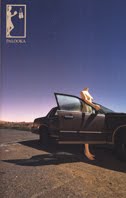 Edited by Nicholas Maistros and Jonathan Starke, Palooka is a non-profit journal of fiction, creative nonfiction, poetry, plays, graphic short stories, graphic essays, comic strips and art/photography. And the editors promise to read everything they receive, “word-for-word, right down to the very last juicy sentence.”
Edited by Nicholas Maistros and Jonathan Starke, Palooka is a non-profit journal of fiction, creative nonfiction, poetry, plays, graphic short stories, graphic essays, comic strips and art/photography. And the editors promise to read everything they receive, “word-for-word, right down to the very last juicy sentence.”
The first issue features fiction by Dustin M. Hoffman, Dan Piorkowski, Emma Bean, M.V. Montgomery, and Carl Peterson, poetry by Ryan J. Browne, Jona Colson, Deana Dueno, Liz Kicak and Tomer Konowiecki, nonfiction by Kelley Rae, Alex Park, Amy Bernhard and Natalia Andrievskikh, artwork by Andrew Abbott and Jim Fuess, and a comic by Chrissy Spallone.
Palooka is available both in print and e-version with online samples of published content.
Spread the word!
Poet Hunt Winners
 The Winter 2011 issue of The MacGuffin features works by winners of the 15th National Poet Hunt. Jim Daniels judged this year’s competition and selected Mary Schmitt, “Tribal,” for first place and Suzanne Roberts, “The Road,” and Rex Richards, “The Washing,” for honorable mention. The 16th National Poet Hunt will be judged by Terry Blackhawk.
The Winter 2011 issue of The MacGuffin features works by winners of the 15th National Poet Hunt. Jim Daniels judged this year’s competition and selected Mary Schmitt, “Tribal,” for first place and Suzanne Roberts, “The Road,” and Rex Richards, “The Washing,” for honorable mention. The 16th National Poet Hunt will be judged by Terry Blackhawk.
Spread the word!
32 Poems – Fall 2010
I have always loved the organizing principle of this little journal: thirty-two ways to write (or read) a poem: Continue reading “32 Poems – Fall 2010”
Spread the word!
Anamesa – Spring 2010
A snarling wolf graces the front cover of this issue. This jolting art, titled “The Queen/Bitch,” by Jennifer Murray provides an intriguing introduction to the central themes of the issue: loneliness and isolation. Continue reading “Anamesa – Spring 2010”
Spread the word!
The Aurorean – Fall/Winter 2010-2011
This fifteenth anniversary issue of The Aurorean, published in Farmington, Maine, celebrates the fall/winter seasons in New England. This issue features poets Jim Brosnan and Martha Christina, and includes a special section of Haiku and “related poetry.” Continue reading “The Aurorean – Fall/Winter 2010-2011”
Spread the word!
Big Muddy – 2010
This journal reads like a road trip. Its rich landscape left me with a lingering sense of journey as I found characters and imagery replaying in my mind like saturated photographs. Continue reading “Big Muddy – 2010”
Spread the word!
Dislocate – 2010
Unaware of any necessary precautions in the handling of “The Contaminated Issue,” I consciously folded back the front cover and crossed my fingers in hoping its pages were not infected with some sort of incurable disease. But it was already too late; the truth is that I was already contaminated; we all are. Continue reading “Dislocate – 2010”
Spread the word!
Elder Mountain – Fall 2010
Marideth Sisco’s essay “You’re Not from Here, Are You?” gives this issue of Elder Mountain its integral sense of place, a right-away taste of the people, culture and world of the Ozarks. Sisco remembers “lying on the porch on summer nights or curled up by the woodstove in winter,” listening to her relatives tell stories. Indeed stories and the people who tell them are the heart of Sisco’s writing and all the varied pieces that follow in this volume. Continue reading “Elder Mountain – Fall 2010”
Spread the word!
Florida English – 2009
For this issue, the overall theme can be summed up in T. Allen Culpepper’s poem “My Life Is Not a Very Good Poem,” which starts, “My life seldom rhymes / (or reasons either, for that matter).” The genres in this issue are nicely mixed up in the ordering, and the result is an elegant, ever-changing reading experience. Continue reading “Florida English – 2009”
Spread the word!
FRiGG – Fall 2010
This lit mag is classier than its somewhat obscene name. The writing generally is clear and of high quality, the website is well laid out, and each story or poem is accompanied by engagingly colorful artwork. There is a certain in-your-face irreverence to many of the stories, but they are also entertaining as a whole. Frigg often presents two or three pieces of flash fiction by the same author – unusual in the universe of online literature today. Continue reading “FRiGG – Fall 2010”
Spread the word!
The Healing Muse – Fall 2010
This tenth anniversary issue of this journal, dedicated to creative explorations of health and healing, includes more than 120 pages of poetry; nonfiction contributions by 14 essayists; five short stories; and more than a dozen pages of appealing and memorable artwork. Continue reading “The Healing Muse – Fall 2010”
Spread the word!
Lake Effect – Spring 2010
Examining the inside of Lake Effect’s back cover will inform the reader of the journal’s standards. It “publishes [fiction] that emerges from character and language as much as from plot.” Always a fan of the character-driven piece, I was delighted to discover that this standard was adhered to carefully. Continue reading “Lake Effect – Spring 2010”
Spread the word!
The Literary Review – Fall 2010
The theme for this is “Refrigerator Mothers: ‘Just happening to defrost enough to produce a child’…and other things we said that we wish we could take back,” and I would recommend it to any writer who is a mother or expecting mother. The issue includes short stories and poems from the perspective of mothers and some from the perspective of the writer thinking back on their mother. “A Good Day,” an essay by Jessie van Eerden, is a moving, detailed look at the seemingly ordinary, everyday aspects of her mother that defined her. Continue reading “The Literary Review – Fall 2010”
Spread the word!
The Louisville Review – Fall 2010
Guest editors Philip F. Deaver (fiction), Nancy McCabe (nonfiction), and Kelly Moffett (poetry) join drama editor, Charlie Schulman, and Louisville Review editor Sena Jeter Naslund to offer up yet another notable issue. From accomplished poets Eleanor Wilner, Stephen Dunn, and Frederick Smock—among many others—to the surprising accomplishments of poems in the “Children’s Corner,” featuring work more polished and successful than one expects from high school students, this is a particularly appealing issue. Continue reading “The Louisville Review – Fall 2010”
Spread the word!
Monkeybicycle – 2010
Monkeybicycle’s cover for this issue seduced me with its sleek matte finish of an image of red smoke over a white background. It was a pleasure to just hold the journal, and I couldn’t wait to see under the covers. The interior layout is conventional but easy to read, and I’m very thankful the editors didn’t try to do something fancy with the table of contents; they keep it simple and clean. The real beauty of this issue isn’t the cover or the layout, though. It’s in the stories and poems. Continue reading “Monkeybicycle – 2010”
Spread the word!
New Letters – 2010
“Flight in Word and Deed” is the theme to this issue—transcendence, explains editor Robert Stewart. His introduction is, nonetheless, a defense of the grounded nature of the literary journal as an object, something “weighty” we can hold in our hands. (“As America gets fatter, it seems to want its art to become weightless,” he writes of e-books and cyber publications). He doesn’t need to convince me that the printed page, the bound volume, the variation in texture from the uncoated paper of the pages containing stories and poems to the glossy coated stock of the extraordinary reproductions of paintings by Fabian Debora are worth their weight in pixels, providing a kind of pleasure hard to replicate in digital spheres. Continue reading “New Letters – 2010”
Spread the word!
Rattle – Winter 2010
Rattle‘s winter issue features a special section of poetry entitled “Tribute to Mental Health Workers,” which includes poetry on a variety of issues in the field, from Alzheimer’s to therapists to hospital workers. While some poems delve into the grief and sadness of these illnesses, others approach them with hope. Gwenn A. Nusbaum’s poem “Hospital, Spring,” is one such poem, describing a man waiting during his wife’s surgery, while “babies are being born.” This section also includes an interesting article by Maryhelen Snyder, “The Art of Waiting: The Parallels of Poetry and Therapy.” Continue reading “Rattle – Winter 2010”
Spread the word!
Sleeping Fish – 2010
The cover explains the selections within very well: things are going to get weird. The publication is filled with more questions than answers; each story leaves you in a new locale, and while rereading may make things more understandable, true clarity is never given. The biggest mistake one can make entering these works is assuming that a solution, a character, or a situation will be made explicit. Often one is simply forced to fight imagination with imagination. Continue reading “Sleeping Fish – 2010”
Spread the word!
Washington Square – 2010
The cover art of this issue is from Dan Hillier’s collection of altered engravings, four which appear inside the magazine. Hillier’s pictures are odd, collaging the real with the imagined. Many of his engraving show humans with animal features. For example, the engraving on the cover depicts a woman in Victorian dress whose skirts branch out into octopus tentacles. This weirdness seems intentional and thematic for the issue as a whole. Continue reading “Washington Square – 2010”
Spread the word!
Western Humanities Review – Summer 2010
When I read for pleasure I want to be transported to another place: another world, another time, another headspace. But it is a particular treat when I am able to get a fresh perspective on the art of writing and storytelling itself. Continue reading “Western Humanities Review – Summer 2010”
Spread the word!
Wild Apples – Spring/Summer 2010
“Animals take center stage in this fifth issue of Wild Apples,” writes Linda Hoffman, the founding editor of the journal. Humans are a part of this issue too, but more precisely the pieces are about how we fit into the animal world—and even how the animal world fits into us. (In some cases, literally; in “The Animals Within Us,” Greg Lowenberg discloses that four hundred species of parasites live in and on us, including our intestinal tracts.) Thus, the interconnection between humans and other creatures becomes the thematic thread that strings together all the pieces in this issue. Continue reading “Wild Apples – Spring/Summer 2010”
Spread the word!
ZYZZYVA – Fall 2010
ZYZZYVA, besides having name difficult to pronounce, is a triannual publication out of San Francisco and features only West Coast writers. The name itself refers to tropical American weevils and is the last word in most dictionaries. Continue reading “ZYZZYVA – Fall 2010”
Spread the word!
Tipton Poetry: Local Global Lit Mag
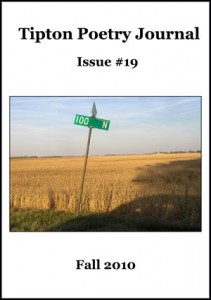 Tipton Poetry Journal is one of those great, saddle-stitched journals that looks local, but packs a helluva global content. The Fall 2010 issue includes a kasen renga, a form of Japanese collaborative poetry consisting of a chain of 36 verses. “Kasen Renga: Autumn” is a collaboration between Joyce Brinkman, Kae Morii, and Carolyn Kreiter-Foronda. Also featured is Rohana McCormack’s “First Snow” – an English translation of Sergey Yesenin’s original Russian poem, “Я по первому снегу бредуand,” and Liang Yujing’s “Four Pseudo Haiku” written in English and self-translated into Chinese.
Tipton Poetry Journal is one of those great, saddle-stitched journals that looks local, but packs a helluva global content. The Fall 2010 issue includes a kasen renga, a form of Japanese collaborative poetry consisting of a chain of 36 verses. “Kasen Renga: Autumn” is a collaboration between Joyce Brinkman, Kae Morii, and Carolyn Kreiter-Foronda. Also featured is Rohana McCormack’s “First Snow” – an English translation of Sergey Yesenin’s original Russian poem, “Я по первому снегу бредуand,” and Liang Yujing’s “Four Pseudo Haiku” written in English and self-translated into Chinese.
Spread the word!
Prism Review Fiction and Poetry Prize Winners
This year’s winners of the Prism Review prizes in fiction and poetry are Mary Ann Davis for her poem, “From the Sublunary Year” and Becky Margolis for her story, “Weatherization.”
Poetry judge Craig Santos Perez says the winning poem “manages to weave lyricism, abstraction, narrative, image, symbolism, formal experimentation, character, and deep emotion into a haunting poetic experience. It’s a heartbreaking attempt to ‘fill the silence of illness.'”
Fiction judge Lucy Corin says of “Weatherization,” “There’s something to the flattened tone that suggests something quite gutsy about the issues the story takes up about violence . . . . In the end, what I ask of a story is that it really push itself beyond its initiating premise, that the issues it raises be taken up with as much complexity as possible, evading every easy answer, every self-satisfaction.”
Both winners receive $250 and they will appear in the forthcoming issue of Prism Review, to be published this spring.
Spread the word!
Salamander Fiction Contest Winners
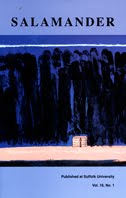 The newest issue of Salamander (v16 n2) includes the winners of the magazines first-ever fiction contest with Jill McCorkle as final judge. The first prize winner is Timothy Mullaney (“Green Glass Doors”) and runner up is Susan Magee (“The Mother”). The judge for Salamander’s 2011 fiction contest will be Jim Shepard. Entry period is April 15 – May 15 (postmark deadline).
The newest issue of Salamander (v16 n2) includes the winners of the magazines first-ever fiction contest with Jill McCorkle as final judge. The first prize winner is Timothy Mullaney (“Green Glass Doors”) and runner up is Susan Magee (“The Mother”). The judge for Salamander’s 2011 fiction contest will be Jim Shepard. Entry period is April 15 – May 15 (postmark deadline).
Spread the word!
WLT Explores Science and Literature
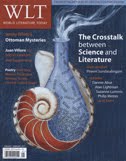 The January 2011 issue of World Literature Today, guest edited and introduced by Pireeni Sundaralingam, includes a symposium on The Crosstalk between Science and Literature:
The January 2011 issue of World Literature Today, guest edited and introduced by Pireeni Sundaralingam, includes a symposium on The Crosstalk between Science and Literature:
Physicist Alan Lightman and philosopher Rebecca Newberger Goldstein discuss how they devise “emotional experiments” in their fiction in order to probe the limits of rational thought. [Full text online]
In a provocative essay, poet and cognitive scientist Pireeni Sundaralingam asks, Are science and poetry inherently at odds with each other? [Full text online]
Authors Suzanne Lummis, Philip Metres, Vincenzo Della Mea, and Tone Hødnebø conduct playful experiments in new poems tied to the issue’s theme.
Berlin-based architect Eric Ellingsen co-opts the repeating structure of the poetic villanelle to remap space and to explore how literature might inform urban design.
Welsh poet-physician Dannie Abse traces the intersections of poetry and medicine in his own life and work.
Playwright Kenneth Lin discusses theater’s ability to convey the grandeur of scientific discovery. [Full text online]
Spread the word!
BLP Chapbook Winner
 Black Lawrence Press announced that Charlotte Pence has won the Black River Chapbook Competition for her manuscript Branches. Charlotte will receive $500 in prize money and a publication contract from BLP.
Black Lawrence Press announced that Charlotte Pence has won the Black River Chapbook Competition for her manuscript Branches. Charlotte will receive $500 in prize money and a publication contract from BLP.
A list of finalists for the award is available here.
Spread the word!
New Issues Green Rose Prize Winner
 The Editors of New Issues Poetry and Prose are pleased to announce the winner of the 2011 Green Rose Prize: Corey Marks for his manuscript The Radio Tree. Corey wins a $2,000 award and publication of his manuscript in the spring of 2012.
The Editors of New Issues Poetry and Prose are pleased to announce the winner of the 2011 Green Rose Prize: Corey Marks for his manuscript The Radio Tree. Corey wins a $2,000 award and publication of his manuscript in the spring of 2012.
Also accepted for publication: The Frame Called Ruin by Hadara Bar-Nadav to appear in the fall of 2012
The Green Rose Prize is awarded to an author who has previously published at least one full-length book of poems. Winners are chosen by the editors of New Issues Press.
